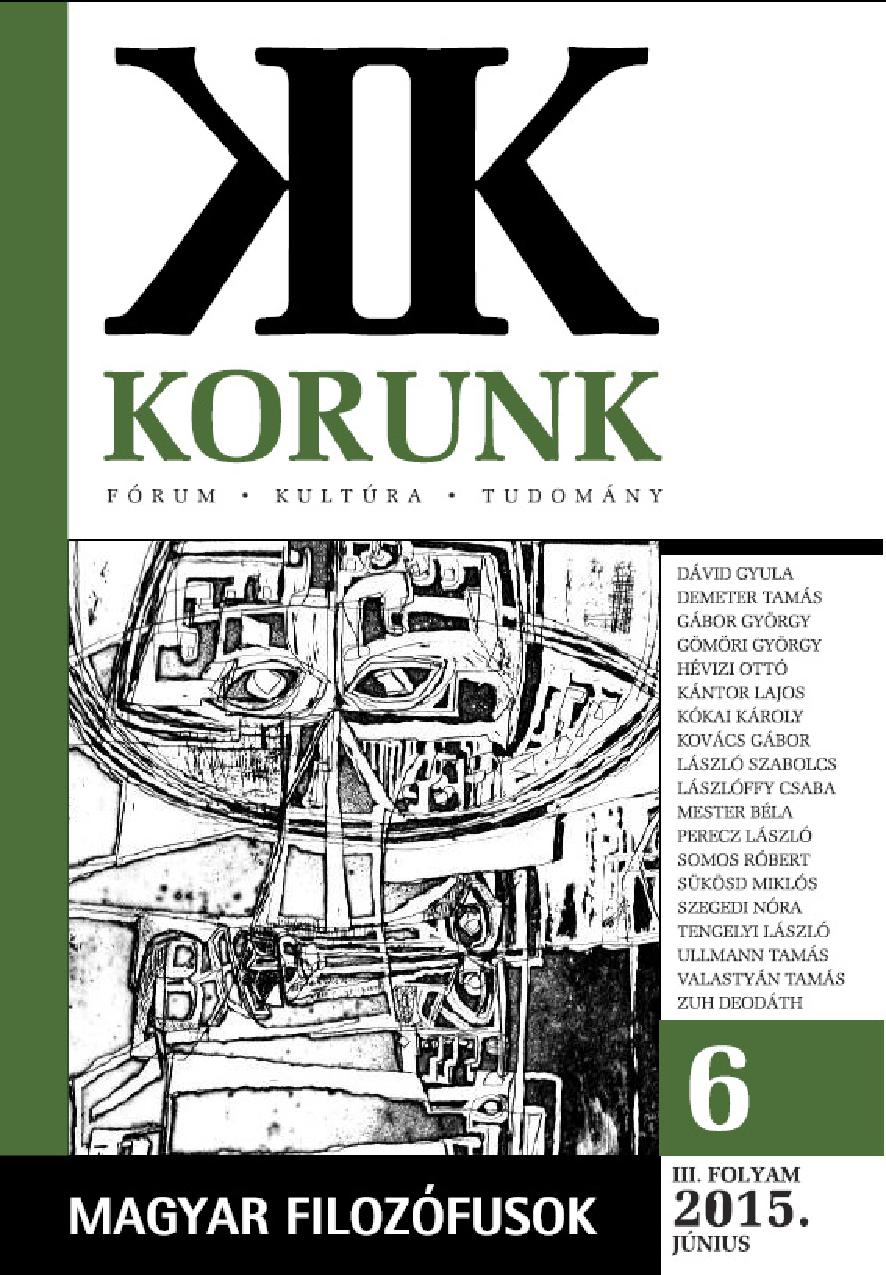Diakritikai etika
Diacritical Ethics
On the Ethical Consequences of Tengelyi’s View of the Late Kant and of Temporality
Author(s): Ottó HéviziSubject(s): Philosophy, Philosophical Traditions
Published by: Korunk Baráti Társaság
Keywords: László Tengelyi; Maurice Merleau-Ponty; Emmanuel Lévinas; Immanuel Kant; diacritical ethics; antinomy
Summary/Abstract: In his early works, László Tengelyi made an attempt to create a theory aiming to unify the “diacritical system” of Merleau- Ponty and the “an-archic” ethics founded by Lévinas upon the thought of “radical alterity”. Later on, Tengelyi turned away from this theory that he himself developed. In my paper, I would like to argue that this ethical approach of his is indeed both possible and relevant, and that one can call it a diacritical ethics. My thesis is based – within the framework of a kind of “philosophical replay” – on two elements: on the radical temporality of the “diacritical model”, and on Tengelyi’s interpretation of the late Kant, whom he calls “the thinker of antinomies”. I believe it is precisely Kant’s wellelaborated antinomies that can reveal the main differences (the main oppositions) of our ethical decisions as well as the temporal dimensions of our ethical theories. Three differences are to be detected and distinguished here, namely those in respect of [1] ethics, [2] morality, and [3] virtue. One can call these differences unbridgeable gaps: gaps [1] between theories founded upon the immanent (present-focused) and transcendent (future-focused) ground; [2] between the theories of deontologism (their measure is always a priori) and consequentialism (their measure is always a posteriori); and [3] between the theories of free will (all these notions reckon with the beginning) and (beginningless) determinism. Nevertheless, these antinomies are not to be resolved. Rather, they exist as limits for considering our ethical problems. It is by these limits that a diacritical space of our ethics is, from time to time, constituted and reconstituted. It is only within these limits that our diacritical ways appear, moving always between the past and future, sometimes crossing each other in radical turns, which Tengelyi calls “destinal events in life history”. The conclusion of the paper is that as the diacritical ways of our “life histories” exist always diachronically in a diacritical space, which is also limited by our thinking of temporality, the theory of a diacritical ethics is a possible, coherent and acceptable approach.
Journal: Korunk
- Issue Year: 2015
- Issue No: 06
- Page Range: 73-80
- Page Count: 8
- Language: Hungarian

